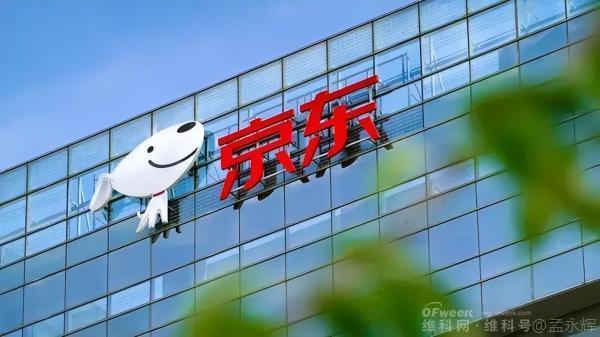JD.com "gets hurt" behind the scenes
![]() 10/24 2024
10/24 2024
![]() 520
520

As we all know, the shuffling of the internet industry has been ongoing, and even in today's era of AI proliferation, this shuffling has not stopped.
If we were to summarize and define the in-depth shuffling of the internet industry, it would no longer rely solely on the traditional internet model of digging deep trenches and building high walls for development. Instead, it would involve opening the door, facilitating mutual integration, and seeking new opportunities in the new context. This approach would undoubtedly be most suitable.
Precisely because of this, the internet industry is embarking on a brand new "restart".
If we were to summarize and define such a "restart," this year's Singles' Day would undoubtedly be a critically important node.
Through it, we can fully observe the state of development of the internet industry after its "restart," and we can equally find new directions for development after the internet industry's "restart".
Whether it's the traditional players represented by Alibaba and JD.com, or the new players represented by Douyin and Kuaishou, all have inevitably joined this new competitive landscape.
As the internet begins its "restart," players once again find themselves standing on the same starting line. Their competition no longer relies on traditional models and logics, but rather embarks on a new development led by fresh momentum and innovative approaches.
Judging merely by the initial performance during Singles' Day, the intensity of competition among internet players during the "restart" phase is not in the least inferior to that of the past.
I
This point can be gleaned from the real-life incident where JD.com has already "taken two hits" right at the outset of Singles' Day.
It is foreseeable that internet players operating under interconnected and interoperable systems are seeking new competitive models that suit them.
If we were to summarize and define the environment in which internet players find themselves at this stage, the era of stock is undoubtedly the most fitting description.
The so-called era of stock refers to a situation where internet players can no longer rely on extending the traditional internet development model or exchange incremental gains for incremental growth, but rather need to seek new developmental opportunities within established scales.
Unlike the market in the era of increment, which has certain growth potential, in the era of stock, internet players need to secure a share of the limited market to achieve new development.
However, the dividends of the era of stock are limited after all.
For each player, to find new development opportunities in this stage inevitably requires greater sacrifice.
If we had to describe the current state with one word, "hand-to-hand combat" would undoubtedly be the most fitting.
Precisely because internet players have embarked on "hand-to-hand combat," we have witnessed JD.com encountering crisis after crisis right at the start of Singles' Day.
In a sense, JD.com is merely the beginning.
In future competitions, we will witness more incidents similar to what happened to JD.com. For each internet player, finding new competitive models and methods in the era of stock may well be the key to ensuring their continued presence at the table.
To put it somewhat alarmingly, internet players in the era of stock who fail to fully comprehend this new competitive model may have weathered the baptism of the era of increment but will be unable to withstand the impact of intense competition in the era of stock.
II
We all know that in the era of increment, competition among internet players was actually based on certain conditions and foundations.
Back then, both capital and traffic enjoyed immense developmental dividends.
Precisely because of such dividends, internet players could find a balance between capital and traffic to achieve growth and even secure a place in the internet industry.
The players we now see remaining at the internet table are all those who have achieved a perfect fit between capital and traffic and found development models suitable for that market situation.
As the era of stock arrives, the dividends of capital and traffic cease to exist, and internet players can no longer achieve growth by realizing the synchronous resonance of capital and traffic.
For each internet player, truly finding ways and means of self-sufficiency and genuinely forming a business closed loop independent of capital and traffic is undoubtedly the key to ensuring their continued presence at the table.
This is precisely the case with the internet players we currently see remaining at the table.
Whether it's Alibaba's decapitalization, JD.com's direct sales, or Tencent's integration of digital and real economies, each is a direct manifestation of this state.
If we were to summarize and define the capabilities of internet players in the era of stock, the ability to generate self-sufficiency and truly form a commercial closed loop independent of capital and traffic would undoubtedly be another aspect deserving of our attention.
However, this places high demands on internet players.
It signals that opportunities for trial and error are dwindling for internet players, and that competition among them is intensifying.
Whether for established internet players or emerging internet unicorns, failure to find truly suitable development models for the era of stock will prevent them from unlocking new developmental opportunities and expose them to increasing difficulties and challenges.
III
As the internet begins its "restart," the development model solely driven by the internet as an internal force encounters growing difficulties and challenges.
This poses a challenge for any player based primarily on the internet model.
Such a scene may already be evident among traditional internet players, but it is equally emerging among internet players like Douyin.
Previously, we witnessed a series of internet celebrities on Douyin's platform losing their following, which is a direct manifestation of this phenomenon.
Therefore, as the internet begins its "restart," we need to see the derivation and emergence of new business models.
In this process, we have witnessed Alibaba's embrace of AI, JD.com's reinvention of the traditional B2B model, and Pinduoduo's dominance in overseas markets.
Everything indicates that new technologies and models are becoming the killer app in the internet's "restart" phase.
For any internet player, if they wish to remain at the internet table and make a difference in the restart phase, they must necessarily lead with new technologies and models and find development models suitable for this stage of rapid growth.
If we were to summarize and define the new development models in the internet's "restart" phase, using new technologies and models to "restart" the internet and breathe new life and vitality into it would undoubtedly be most fitting.
Conversely, if internet players cling to outdated development models and cling to the pillars of capital and traffic, they will inevitably encounter the same difficulties and challenges faced by those internet players who have retreated from the table when such an approach becomes unsustainable.
Conclusion
If we were to summarize and define the current state of development in the internet industry, I believe the term "restart" would undoubtedly be most fitting.
JD.com's "taking two hits" right at the start of Singles' Day is a direct manifestation of this phenomenon.
"Restart" signifies that the internet industry has transitioned from the "increment" era to the "stock" era;
"Restart" signifies that the internet industry has bid farewell to traditional competitive models;
"Restart" signifies the maturation of new technologies and models and the calibration and adjustment of old technologies and models.
As the "restart" is underway, competition among internet players will be even fiercer than before, fully comparable to that of the mobile internet era.
For each player seeking to make a difference in this "restart" phase, continuously breaking their established mindset, continuously finding new development models suitable for themselves, and continuously abandoning their obsession with capital and traffic are crucial to ensuring their continued presence at the table in this era of redrawn spheres of influence.






